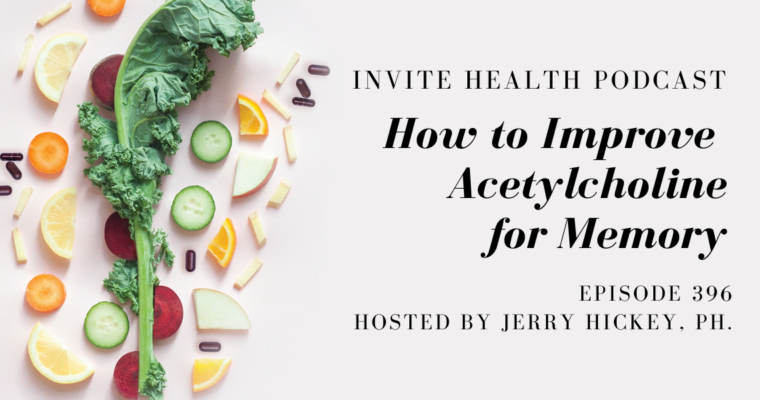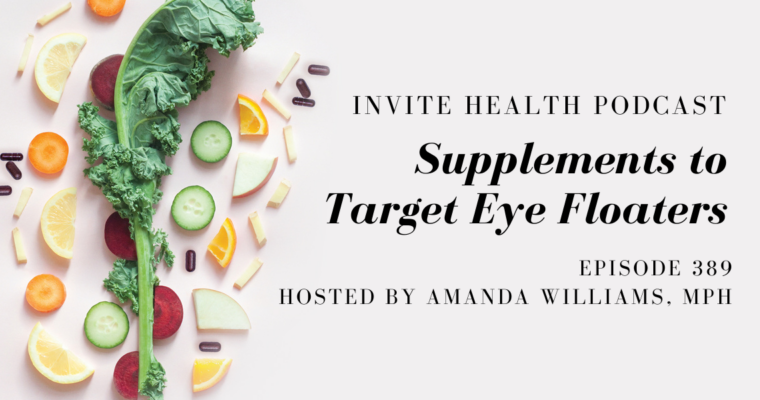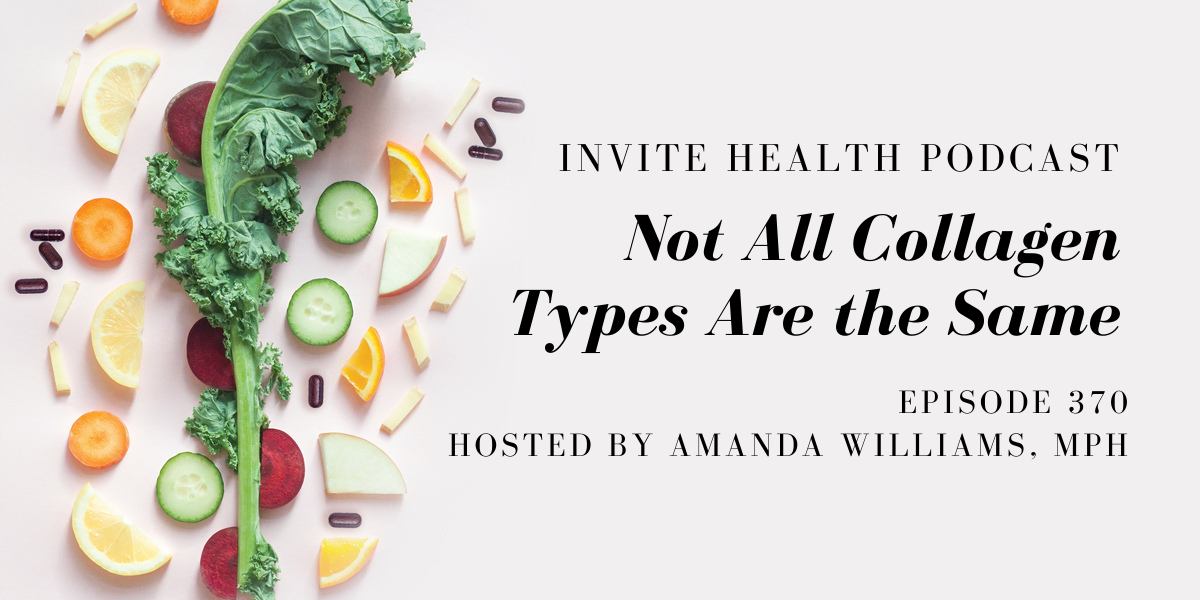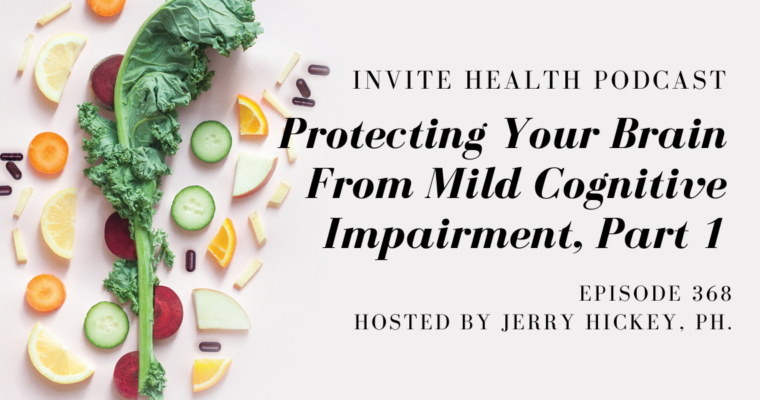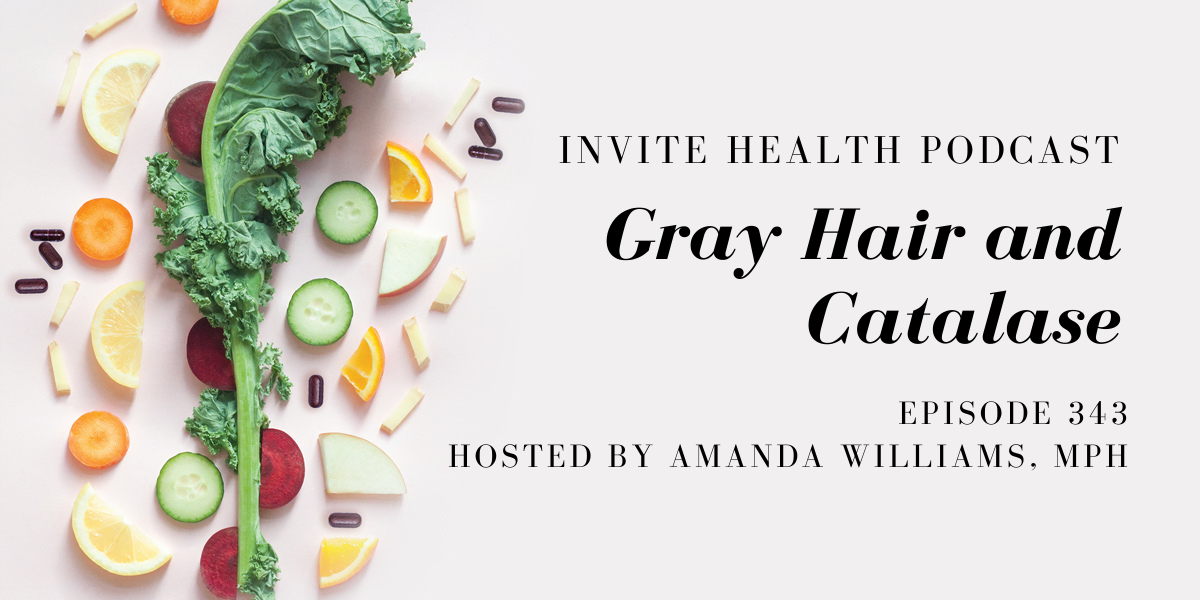collagen
InViteⓇ Health Podcast, Episode hosted by Amanda Williams, MPH
Subscribe Today!
When we think about the aging process, we often think about getting wrinkles or our hair turning gray. This is why so many people have this new-found interest in collagen, but not all collagen is the same. Today, I want to talk about the different types of collagen and how we can maintain a youthful look to our skin, as well as joint health, using supplementation.†
GRAY HAIR AND CATALASE – INVITE HEALTH PODCAST, EPISODE 343. Listen Now>>
The roles of collagen in the body
Collagen plays a significant role in our existence. It is the most abundant protein in the body and is the main component of most of our connective tissues. As we get older, our natural stores of this nutrient begin to diminish, which can really be problematic as we hone in on those fine lines and wrinkles.†
Collagen itself makes up 70% of the weight of the skin’s inner layer. It provides flexibility, but as we get older and our levels of this nutrient begin to diminish, we begin to get sagging of the skin.†
What do the different types do?
There are over 20 different types of collagen found in the body. 99% of this collagen is made up of five different types: Type 1, Type 2, Type 3, Type 4 and Type 5.†

Type 1 accounts for over 90% of all collagen in the body. It is in our bones, ligaments and skin. Type 2 helps to support the cartilage and the structure within our eyes. This can be found in our Cartilage HxⓇ formulation. Type 3 is found in the liver, lungs and different arteries, Type 4 is found in our kidneys, and Type 5 is found in our hair, as well as our cell surfaces.†
STUDIES SHOW THIS UNIQUE COLLAGEN EASES INFLAMMATION – INVITE HEALTH PODCAST, EPISODE 286. Listen Now>>
Collagen gives different organs their strength, as well as their elastic properties. As we start to age, levels of this nutrient decrease, which can create issues with fine lines, wrinkles, fatigue, weakness, aches and pains. This can also impact bone health.†
By the time we’ve hit our middle ages, we’ve lost a good 50% of this nutrient and a majority of this is Type 1. When we’re taking a supplement to combat this, we should be taking a hydrolyzed version of this important protein, which is offered in our Collagen HxⓇ formulation. This allows for proper absorption and distribution throughout the body. It’s not just for the skin or hair, but also for the bones and the immune system.†
In this episode, Amanda Williams, MPH explains the important role collagen plays in the body. She details the differences between the various types of this nutrient and what they are each important for.†
Key Topics:
- How decreasing levels of this nutrient impact organs
- Health issues related to collagen loss
- What is PeptanⓇ B 5000?
Thank you for tuning in to the InViteⓇ Health Podcast. You can find all of our episodes for free wherever you listen to podcasts or by visiting www.invitehealth.com/podcast. Make sure you subscribe and leave us a review! Follow us on Facebook, Twitter and Instagram at InViteⓇ Health today. We’ll see you next time on another episode of the InViteⓇ Health Podcast.


